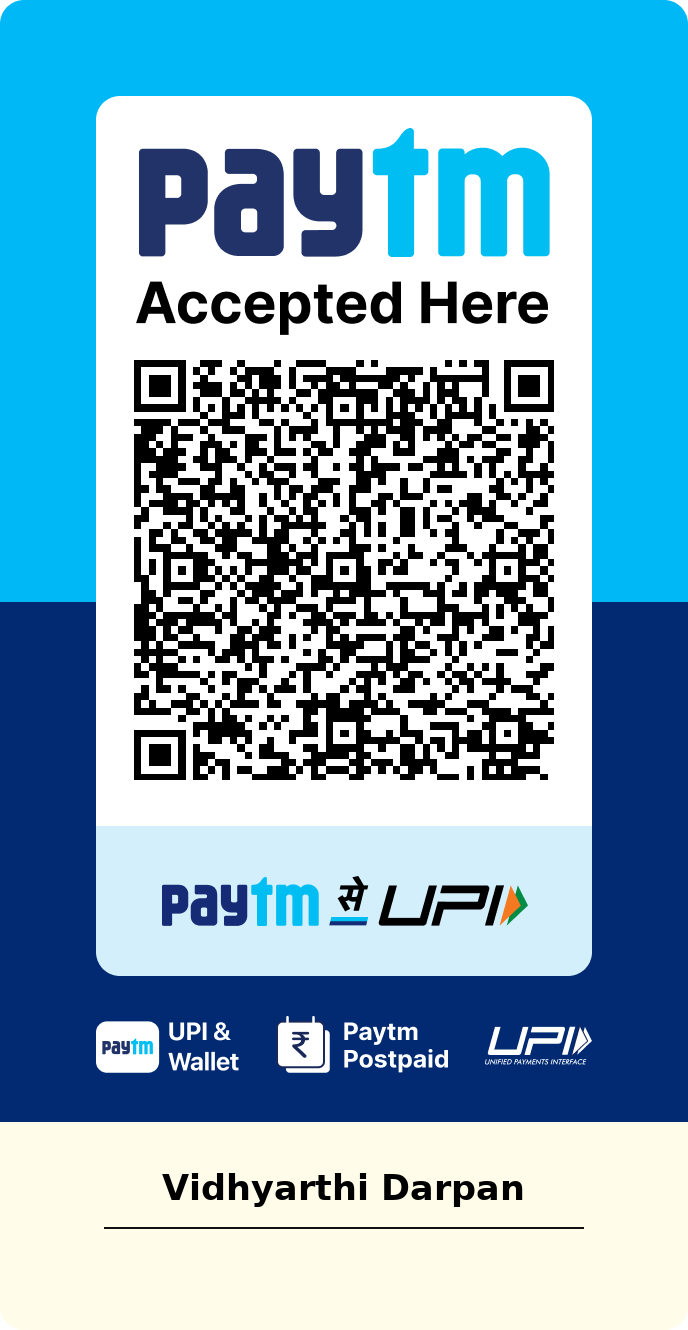Who Conducts CLAT?
CLAT is conducted by the Consortium of National Law Universities (NLUs). It was established on 19th August 2017 with an aim to elevate the standard of legal education in the country and improved the justice system. The Consortium aspires to facilitate better coordination amongst National Law Schools to achieve the highest standards of legal education in the country.
What is the Scope of the CLAT Exam?
Law is a lucrative field that presents an opportunity of serving the legal branch of the country. After 12th, pursuing law is one of the preferred options for many aspirants. The government sector is preferred over private ones because of the security and satisfaction it offers. Many law graduates go for further post-graduation in law in Corporate lawyer, criminal lawyer, government lawyer, legal analyst, legal advisor or legal journalist; the courses are numerous. The last couple of years have witnessed changes and an increase in the demand for law graduates in various fields.
What is the future of the course/after completing LAW college?
There are various fields you can opt for after completing college. There are a large number of students who are going into the litigation field. They educate themselves with various high courts, district courts by working under an established lawyer. You can even enter into judiciary services by giving judiciary exams and become a respectable bureaucrat. You can opt for jobs with the department of legal affairs and the legislative council in the legislative department. Additionally, if you are interested in getting more into the field, you may pursue a master's and complete your Ph.D. and become a Law Professor.
How to Apply For CLAT-UG?
Candidates fulfilling the eligibility requirement (mentioned below) need to register themselves on the official website of the NLU Consortium. After successful registration, candidates need to activate their account by entering the generated OTP in a given space. Candidates require to log in to the account and fill in the personal and academic details in the application form. With the upload of photos, signatures & documents, and payment of application, the candidate's application is successful.
CLAT-UG Highlights
| Name of the Exam |
Common-Law Admission Test |
| Acronym |
CLAT |
| Conducting Body |
A consortium of National Law Universities, Bar Council of India |
| Mode of Exam |
Offline (Pen & Paper exam) |
| Frequency of Exam |
Once a Year |
| Duration |
2 hours (120 minutes) |
| Medium |
English |
| Number of Sections |
05 (English, Current Affairs, Legal Reasoning, Logical Reasoning, and Quantitative Aptitude) |
| Number of Questions Asked |
200 |
| Maximum Marks |
200 |
| Marking Scheme |
+1 mark for each correct answer
-0.25 mark for each incorrect answer
|
| Official Website |
www.consortiumofnlus.ac.in |
CLAT-UG Eligibility Criteria
- Educational Qualification
To be eligible to appear for the CLAT exam, one needs to fulfill a determined educational qualification.
| Category |
Qualification |
Minimum Percentage |
| General |
10+2 examination or equivalent from recognized board/university with Physics, Chemistry, Biology /Biotechnology, and English as compulsory subjects |
45% |
| OBC |
45% |
| SC/ST |
40% |
As per revised rules, there is no upper age limit for CLAT-UG 2021.
Since there is no upper age limit, the candidate can attempt the exam any number of times as per their wish. The Supreme court has allowed candidates in this regard.
Indian nationals, Non-Resident Indians (NRIs), Overseas Citizen of India (OCIs), Person of Indian Origin (PIOs), and Foreign Nationals applicants are eligible to appear for CLAT 2021.
|
Category
|
Application Fee (in INR)
|
|
General
|
4000
|
|
OBC
|
4000
|
|
PwD
|
4000
|
|
SC/ST/BPL
|
3500
|
|
NRI/PIO/OCI
|
4000
|
CLAT-UG - How to Fill Application Form - Flow-Chart
Candidates must fill the application form after a successful registration. Candidates need to take utmost precaution and be mindful of the details being entered in the application form as no changes will be entertained by the authority if discrepancies occur between original and entered data.
The following steps need to be followed:
1) Apply for online registration and activate your account.
2) Filling of application form with correct personal, academic details, and NLU preferences.
3) Uploading of the scanned photograph, signature, and required document in the prescribed format.
4) Payment of application fee.
5) Generation and printing of application forms for future references.
CLAT-UG Exam Pattern
|
Mode of Exam
|
Offline (Pen and Paper Exam)
|
|
Duration of Exam
|
2 hours
|
|
Medium
|
English
|
|
Number of Sections
|
03 (Verbal Ability & Reading Comprehension, Quantitative Ability, Data Interpretation & Logical Reasoning)
|
|
Number of Questions in Each Section
|
English (Comprehension)
Current Affairs
Logical Reasoning
Legal Reasoning
Quantitative Techniques
|
40
50
50
40
20
|
|
Marks for Correct Answer
|
+1 Marks
|
|
Marks for Incorrect Answer
|
-0.25 Mark
|
|
Total Number of Questions
|
200
|
|
Total Marks Allotted
|
200 Marks
|
CLAT-UG Syllabus - Section wise
|
English (Comprehensive)
|
Current Affairs
|
Logical Reasoning
|
Legal Reasoning
|
Quantitative Aptitude
|
|
Passage
|
Art and Culture
|
Argument premise and conclusion
|
Facts or scenarios involving legal matters
|
Algebra
|
|
Reading Comprehension
|
Contemporary Events of National and International Affairs
|
Inference
|
Public policies
|
Mensuration
|
|
Inference & Conclusion
|
International Happenings
|
Relationship and Analogies
|
Philosophical Enquiry
|
Graphs
|
|
Vocabulary
|
Significant Events
|
Contradiction and equivalence
|
General awareness of contemporary legal & moral issues
|
Statistical Analysis
|
|
Summary
|
|
|
Application of rules & passages
|
Ratio and proportion
|
|
Each section will be provided with a passage of varying word count, based on which candidates have to interpret and answer.
The English, Current Affairs, and Legal Reasoning section contain 450-word passages while Logical Reasoning consists of 300-word passages. The quantitative Ability section does not have passage-based questions.
|
Colleges accepting CLAT-UG scores
Below is the list of 22 law colleges that consider CLAT scores for admission into their Law Courses.
-
National Law School of India University, Bangalore (NLSIU)
-
NALSAR University of Law, Hyderabad (NALSAR)
-
National Law Institute University, Bhopal (NLIU)
-
The West Bengal National University of Juridical Sciences, Kolkata (WBNUJS)
-
National Law University, Jodhpur (NLUJ)
-
Hidayatullah National Law University, Raipur (HNLU)
-
Gujarat National Law University, Gandhinagar (GNLU)
-
Dr. Ram Manohar Lohiya National Law University, Lucknow (RMLNLU)
-
Rajiv Gandhi National University of Law, Patiala (RGNUL)
-
Chanakya National Law University, Patna (CNLU)
-
National University of Advanced Legal Studies, Kochi (NUALS)
-
National Law University, Orissa (NLUO)
-
National University of Study & Research in Law, Ranchi (NUSRL)
-
National Law University & Judicial Academy, Assam (NLUJA)
-
Damodaram Sanjivayya National Law University, Visakhapatnam (DSNLU)
-
The Tamil Nadu National Law School, Tiruchirappalli (TNNLU)
-
Maharashtra National Law University, Mumbai (MNLU)
-
Maharashtra National Law University, Nagpur (MNLU)
-
Maharashtra National Law University, Aurangabad (MNLU)
-
HP National Law University, Shimla (HPNLU)
-
Dharmashastra National Law University, Jabalpur (DNLU)
-
Dr. BR Ambedkar National Law University, Haryana (DBRAU)
Best Textbooks and Reference Books for CLAT-UG Preparation
|
Section
|
Name and Author
|
|
English (Comprehension)
|
English is Easy by Chetananand Singh
Word Power Made Easy by Norman Lewis
Objective General English by RS Aggarwal
|
|
Quantitative Aptitude
|
Elementary Mathematics
Quantitative Aptitude by RS Aggarwal
|
|
Logical Reasoning
|
Verbal and Non-Verbal Reasoning by RS Aggarwal
Analytical and Logical Reasoning by RS Aggarwal
|
|
Legal Reasoning
|
Bare Acts of Indian Constitution
Universal's CLAT Guide
Legal Awareness and Legal Aptitude by AP Bhardwaj
|
|
Current Affairs
|
Pearson General Knowledge Manual (latest edition)
Manorama Yearbook
India yearbook
Pratiyogita Darpan
|
Courses offered through CLAT-UG
1) BA LLB - The duration of the course is 5 years.
2) B. Com LLB - The duration of the course is 5 years.
3) B.Sc LLB - The duration of the course is 5 years.
4) BBA LLB - The duration of the course is 5 years while the duration of completing LLB (3 years) after BBA (3 years) is 6 years






















